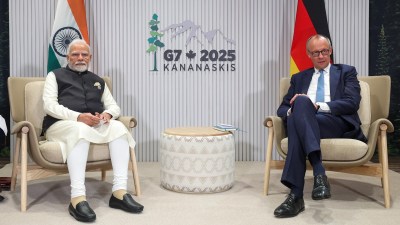Lankan parties further polarised by election
COLOMBO, JAN 28: With the government putting up a bellicose defence against accusations of malpractices in a local government election, t...

COLOMBO, JAN 28: With the government putting up a bellicose defence against accusations of malpractices in a local government election, the ill-will generated between Sri Lanka8217;s ruling People8217;s Alliance PA and the opposition United National Party UNP during and after the election has shattered hopes of any reconciliation between the two on crucial national issues.
The two Sinhala-dominated political groupings have been deadlocked for the last four years over government proposals to share power with the Tamil minority. The Wayamba provincial council election only sharpened the polarisation, setting back all attempts to bring the two together for a swift resolution of the country8217;s problem number one.
In Sri Lanka, the party in power has always missed opportunities for reconciliation with the party in opposition. Rather, the emphasis has been on scoring cheap points over the other side. The recently concluded election was one more example of that.
As a result, the atmosphere between the two dominantSri Lankan parties is more vitiated today than at any time in the recent past. Both sides adopted aggressive postures towards each other during the 45-day election campaign, trading allegations of pre-poll violence and the election itself was marred by incidents of rigging, voter intimidation and impersonation.
Counting of the votes, which saw the PA emerge victorious with 30 out of 52 seats, was boycotted by the UNP, which has said it will contest the result and has threatened non-participation in the newly-elected provincial council.
On Wednesday, the PA wheeled out all its top guns for a counter-offensive against the allegations of election rigging. At least seven senior ministers addressed a joint press conference at which they denied all the charges, described independent observers as agents of the opposition and the media as sensational.
They also hurled mud at the opposition, saying that in many instances, it was the UNP which had threatened and intimidated PA supporters and voters. The ministersadmitted that government supporters, may have been behind some of the incidents and that a party enquiry would fix blame and initiate action against the guilty.
Now, with Sri Lanka8217;s supreme court ordering elections to five other provinces within three months, the antagonism between the two sides can only increase and is certain to be reflected in their respective campaigns. All this can only spell doom for the country8217;s ethnic Tamils. The UNP holds the key to the solution of the ethnic conflict as the government needs its support in parliament to bring about amendments that will enable devolution of power to the Tamil minority.
An agreement between the two on the major issues of the devolution package is also considered essential before any dialogue with the LTTE. Three months ago, the country8217;s business community volunteered to bring about a patch-up, when efforts by the British government failed.
However, after the recent joust in Wayamba and the forthcoming ones in five other provinces, it is evenmore unlikely that the UNP will help the PA to solve national problem number one, particularly as the credit for doing so would go mainly to President Chandrika Kumaratunga. There is no trace of the spirit of consensus which is so essential for peace in Sri Lanka. Instead, what prevails is abuse, name-calling and contrariety.
- 01
- 02
- 03
- 04
- 05































